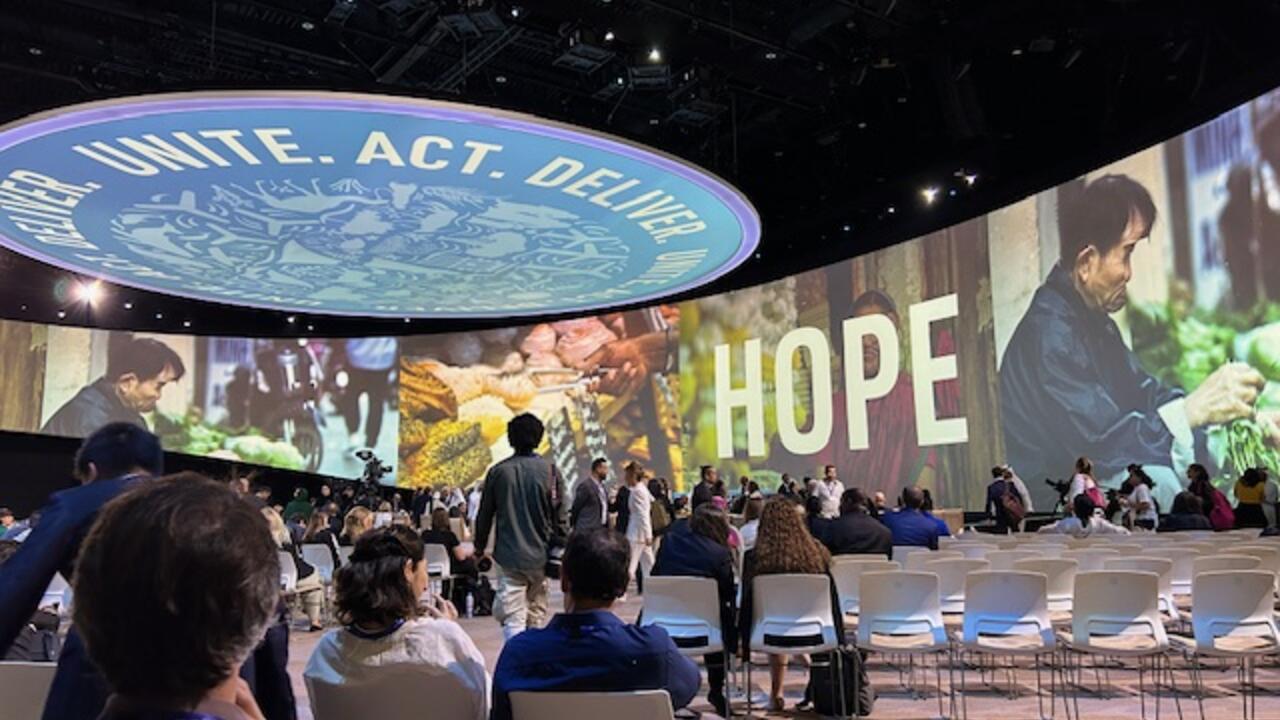
Opinion: From lab coats to advocacy
Navigating science, advocacy and the pursuit of global health equity amidst climate change at COP28

Navigating science, advocacy and the pursuit of global health equity amidst climate change at COP28
By Shahan Salim Faculty of HealthDuring COP28, as I traversed the intricate maze of the event, my mind grappled with the multifaceted nature of my role as an observer. Initially, I contemplated whether my primary duty lay in monitoring negotiations and ensuring accountability or engaging with diverse stakeholders to explore collaborative opportunities, a realization gradually took hold.
The more I immersed myself in discussions, the more I found myself drawn to those directly affected by the harsh realities of climate change. As a scientist representing the University of Waterloo, it became clear that my role transcended observation — it evolved into that of an advocate.
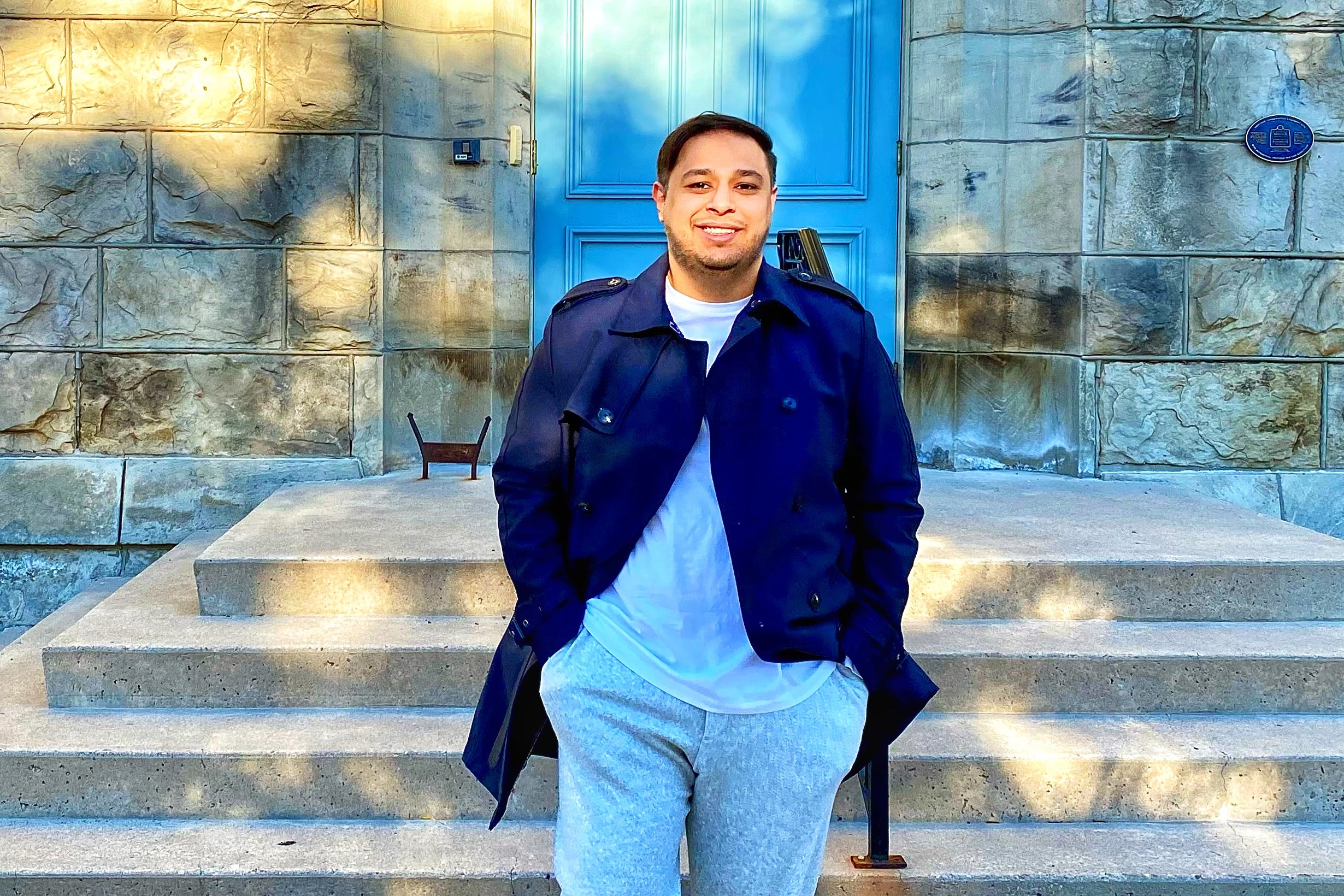
Scientists, researchers, academics and students stand as advocates for human rights, social justice and equity. In public health, our collective responsibility is to leverage our privilege, knowledge and expertise to champion the well-being of those who may lack the means to voice their concerns. This commitment extends beyond individual efforts, highlighting the imperative for the scientific and academic community to advocate for health-focused stances grounded in the outcomes of rigorous inquiry.
When asked to deliver the closing statements on behalf of the research and non-governmental organizations at the COP28 Closing Plenary — a global audience comprising of world leaders — I sought to advocate for those whose voices might be missing, unheard or in need of amplification and support.
In highlighting the imperative for peace amid ongoing geopolitical conflicts, my focus centred on underscoring the immediate and profound impact of war on health systems. The repercussions of conflict extend far beyond immediate casualties, casting a long and distressing shadow over health systems. The scarcity of essential medical supplies results in a distressing surge of illnesses and fatalities.
My plea was directed towards all parties involved, urging a prioritization of peace and an immediate cessation of hostilities. Amidst the discourse on climate action, the resonance falls flat when innocent lives are caught in the crossfire of conflict. My emphasis aimed at underscoring the paramount importance of safeguarding human lives — an urgency that cannot be overshadowed by any other discourse.
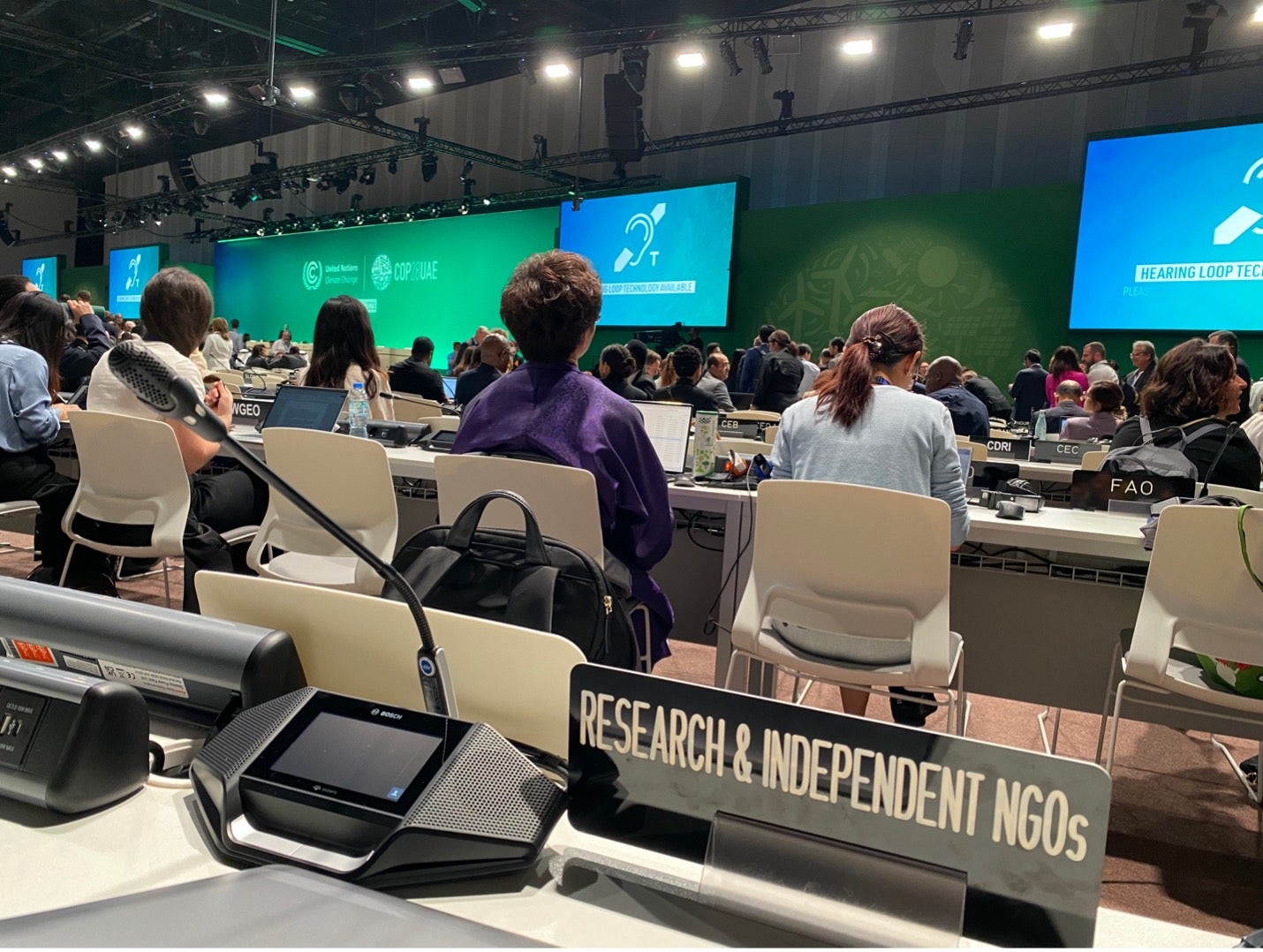
Moreover, the advocacy extended to championing science and scientific methods. It is imperative to rely on the most up-to-date data and scientific findings to underpin decision-making processes. Cherry-picking scientific evidence to advance particular agendas is a dangerous practice that undermines the integrity of informed decision-making.
Equally crucial is the emphasis on developing frameworks that facilitate the systematic testing of new technologies and solutions. Rather than being touted as silver bullet solutions to intricate and wicked problems, these innovations should be subjected to rigorous evaluation within established frameworks. This approach ensures a nuanced understanding of their efficacy and potential implications in addressing complex challenges.
There is a pressing need to shift the future focus towards human health. Despite meticulous attention to economic considerations, the prevailing discourse frequently sidelines the critical importance of preserving human health and lives.
It is vital to recognize that while economic factors play a significant role, they must not overshadow the fundamental objective of safeguarding individual and collective well-being in the face of climate challenges. The emphasis should unequivocally turn towards ensuring these discussions remain anchored in preserving and enhancing human health, acknowledging it as a central and indispensable component of sustainable and resilient futures.
I also wanted to champion the imperative to open space for traditional knowledge and wisdom. Local and Indigenous communities possess an intimate connection with the Earth, often overlooked by western science. Empowering a broader spectrum of voices is paramount by ensuring diverse perspectives contribute to the implementation of realistic, scientifically founded solutions in situ.
This involves a shift towards collaborative approaches, where co-development of roadmaps and co-implementation of concrete solutions become the norm. By embracing this inclusive model, we enrich the breadth of insights and pave the way for more effective and successful outcomes, harmonizing traditional wisdom with contemporary scientific understanding in a unified pursuit of sustainability.
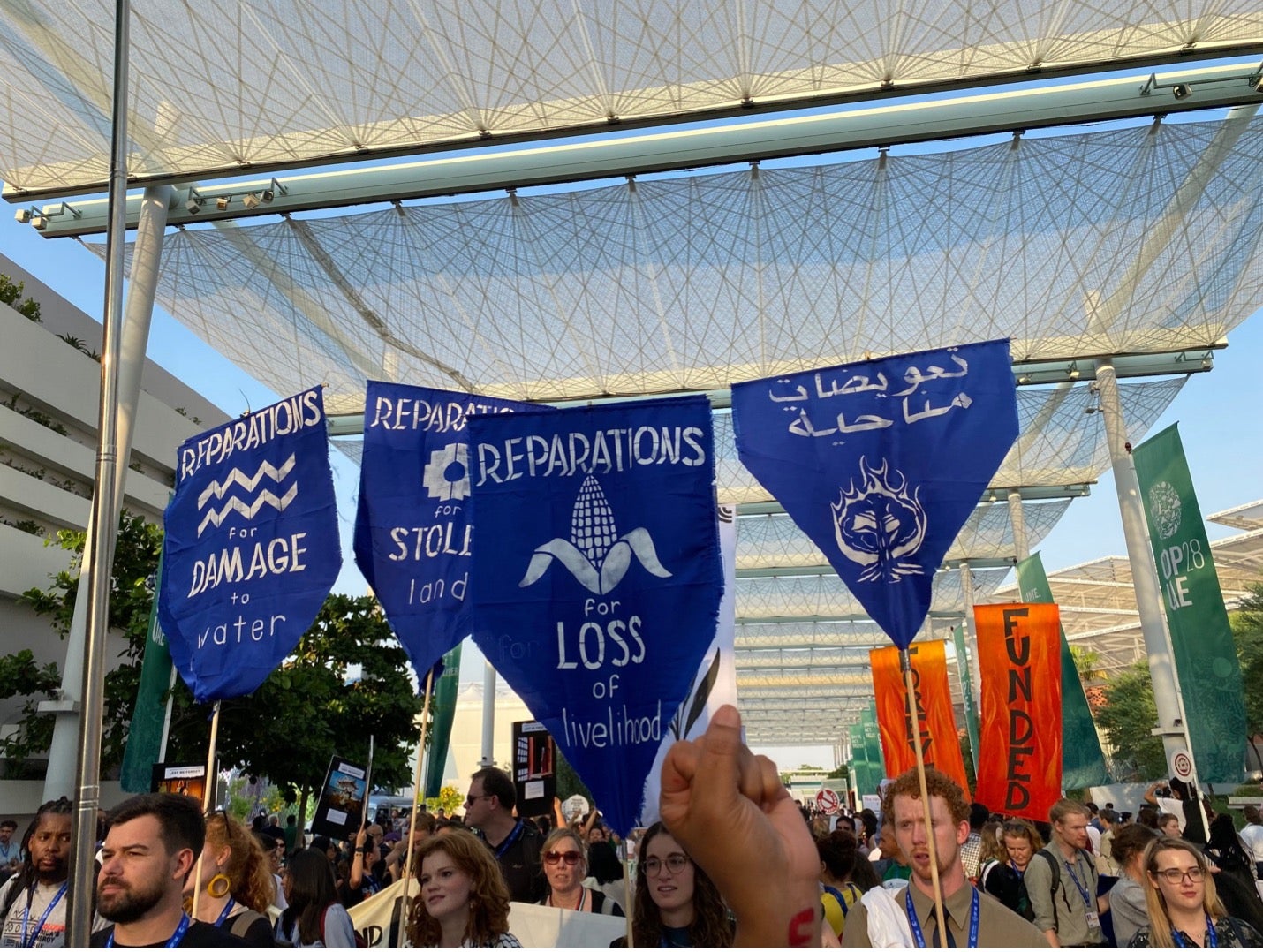
The role of scientists, researchers and students extends beyond the realm of data and findings; it encompasses an obligation to be advocates for human rights and social justice. Beyond the confines of laboratories and academic institutions, there lies a profound responsibility to champion the well-being of individuals and communities.
As stewards of knowledge, we must use our expertise to stand up for the marginalized, amplify the voices of the unheard and advocate for justice. By embracing this duty, we contribute to creating a more equitable and sustainable world and cultivate a legacy of compassion, empathy and positive change for generations to come. It is at the intersection of science and advocacy that the true potential for transformative impact emerges — a potent force capable of shaping a future where the well-being of individuals and the health of our planet stand as unwavering priorities.

Read more
How machine learning empowers collaboration between computer science, math and medical research
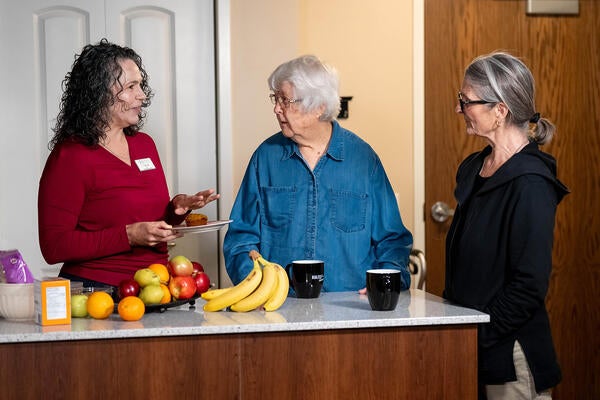
Read more
Dr. Heather Keller discusses the need to transform mealtimes in Canada’s long-term care homes from a service to a meaningful form of care

Read more
“I’m just like you.”
The University of Waterloo acknowledges that much of our work takes place on the traditional territory of the Neutral, Anishinaabeg, and Haudenosaunee peoples. Our main campus is situated on the Haldimand Tract, the land granted to the Six Nations that includes six miles on each side of the Grand River. Our active work toward reconciliation takes place across our campuses through research, learning, teaching, and community building, and is co-ordinated within the Office of Indigenous Relations.